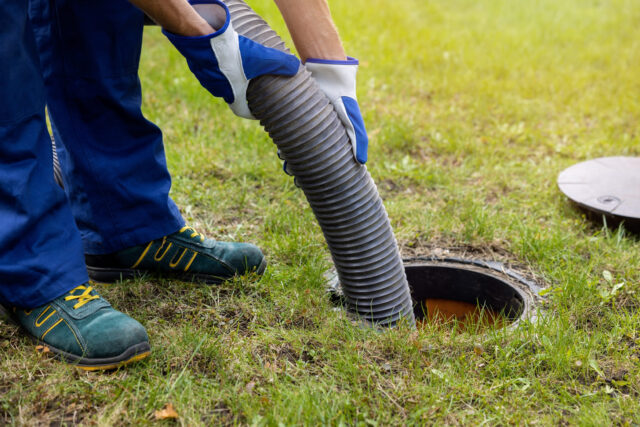Septic tank repairs can be a necessary evil. To keep your septic system running smoothly, you need to have septic tank repair done every few years. And if you’ve never done it before, septic tanks can seem like an intimidating mystery. But don’t worry! This article will give you everything that you need to know about septic tank repair and how to do it yourself so that the next time your septics start acting up, you’ll know exactly what to do!
A septic tank is an integral part of your home. While the system often goes unobserved, it is hard at work treating and disposing of your household trash twenty-four hours a day. Many homeowners disregard or fail to plan regular septic tank repair, as the old phrase “out of sight, out of mind” implies.
A clogged or overflowing toilet can introduce harmful sewage into your home, resulting in an unpleasant sewage odor, seeping or overflowing septic tanks and leach fields, and back up. If your home has a septic tank system, you should follow these procedures to keep it in good working order and avoid costly septic system repairs or property damage.
Any form of failure or breakdown can quickly evolve into a significant biohazard, requiring several weeks and thousands of dollars to fix. Septic tank neglect might not only result in a disaster, but it can also contribute to neighborhood pollution. Fortunately, the majority of modern septic systems are cleverly engineered. You won’t have to worry about a situation like this if you perform adequate preventative maintenance. Don’t know where to begin?
Start by reading the user manual for your septic system. You’ll discover the manufacturer’s instructions there, which will lay the groundwork for the type of preventative maintenance and service it will require. You can also reach out to a local Indianapolis plumber for answers to some common septic tank questions, as well as to schedule an in-person inspection and learn more about your system.
How often septic tank repair is needed depends on the size of your septic system, how you use it and how many people are using it. However, if you have not had septic tank repairs done in the past three years or more, then now may be a good time to think about scheduling an appointment for septic service.
Understanding how your septic system works can help you adopt the proper preventative maintenance and care habits. Your plumber may confirm all of your septic system’s characteristics and recommend maintenance once more. The following are the two most crucial facts to know regarding preventative maintenance for most makes and models of septic tanks:
1) Most modern-day septic tanks require routine pumping and service. Once a year, this should be done.
2) For septic systems, sewer and drain service are also suggested, and it should be arranged every year or so.
Why Should You Consider Installing A Septic System In The First Place?
Using the municipal sewer system to dispose of waste might be costly. A septic tank is usually a more cost-effective choice, and these systems also have other benefits. When selecting a wastewater elimination system, you must evaluate various elements such as cost, longevity, and your environmental imprint. The local water supply is frequently used for enjoyment and health in coastal places. If you reside in one of these locations, you must do all possible to keep your system in good operating order to limit your environmental imprint. Septic tank repair is one of the many ways you can achieve this.
Other Facts:
- Septic tanks are more environmentally friendly
Because septic tanks employ the soil’s natural filtering process to clean wastewater, they have a lower environmental impact. The septic tank filters the water before it is released into the ground. The bacteria are subsequently filtered out by the soil, making the water safe to consume and reuse. When you use a septic tank, you are helping to replenish the water table beneath your property. On your property, recycling wastewater ensures that the local water table is always refreshed, good for the vegetation and wildlife.
- You will not be required to replace the tank
If you maintain your septic tank, it can last as long as your house. You can utilize your septic tank for up to forty years, or even longer, if you get it inspected and maintained regularly by an expert. To avoid damages and obstructions, you should seek a professional who can service your septic tank as needed.
- Septic tanks are less expensive
Your water expenses will be greater if you use a public sewage system. Using a septic tank is far more cost-effective because there are no upfront fees other than the initial installation and periodic maintenance. The cost of installing a septic tank varies depending on the size of tank you want, the type of system you desire, and the location of your property, but you will save money in the long run.
- How often should the system be cleaned or pumped?
While opinions differ on how often your septic tank should be cleaned or pumped, most industry experts agree that it should be done every 3 to 5 years. The frequency of pumping will be determined by the number of residents in the home and the overall health and condition of the system and leach field.
- What should be done if the septic tank is overflowing?
If your septic tank is overflowing, call a septic professional as soon as possible. Do not try to fix the problem yourself. Trying to open or clean the septic tank could cause you serious injury. Homeowners who have attempted to clear their septic tanks often get into accidents. It is better to call professionals to ensure a safer and efficient job.
- Your Sump Pump Upkeep Responsibilities
Although most of the work should be done by a professional, there are some septic system preventative maintenance tasks that you may do on your own. Whether you have a household or commercial sump pump system, frequently inspecting it to ensure it is still working and discharging water appropriately is one of the most effective means of maintenance. Although winter is the best season to do so, it’s still vital to check it a few times a month.
All septic system users should also have a sump pump installed in their homes as an extra precaution. If you’re unsure if you do, contact your septic installer and ask them to add one during the septic tank installation process.
When septic tank repair is needed, hiring a professional septic contractor is important. Many inexperienced homeowners try to fix septic tanks on their own and often worsen the problem. Septic system problems should only be handled by experienced professionals who know how to do it properly.

